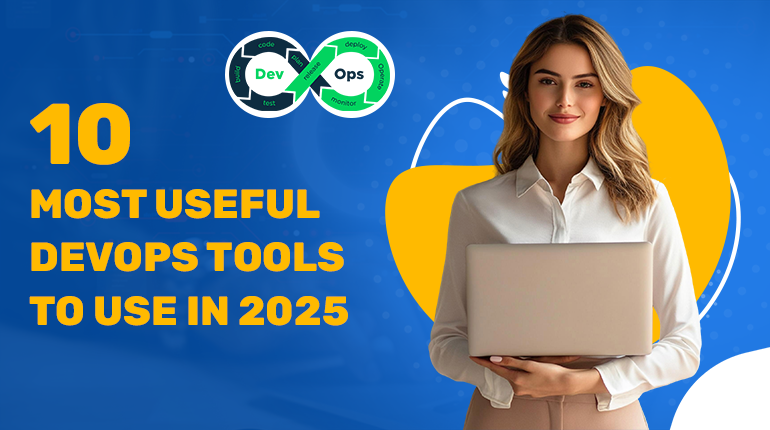As we move deeper into 2025, the need for agility, automation, and collaboration in software development has never been greater. DevOps tools accelerate delivery, reduce risk, and streamline collaboration between development and operations teams. With far too many tools in the ecosystem, however, which ones are worth it?
Top DevOps Tools Developers Should Know in 2025
1. Jenkins CI/CD tool
Jenkins remains a cornerstone for CI/CD pipelines due to its open-source flexibility and extensive plugin base. Its distributed builds feature makes it an ideal choice for handling colossal projects with numerous development pipelines.
2. GitLab CI/CD pipeline
GitLab CI/CD offers a single platform for source control and continuous integration with built-in automation and security scanning, enhancing collaboration among teams, accelerating deployments, and maintaining code quality and version control.
3. Docker containerization
Docker revolutionized software deployment through containerization. Docker offers environment consistency by packaging applications and their dependencies into a bundle package, enhancing development, testing, and production.
4. Kubernetes orchestration
Being the inventor of container orchestration, Kubernetes supports automatic scaling, load balancing, and self-healing for applications in containers. Its robust architecture is key to managing distributed complex systems at scale.
5. Terraform infrastructure as code
Terraform allows teams to write and provision infrastructure in code, ensuring repeatable and consistent deployments. Its cloud-agnostic design and multi-cloud provider compatibility make it ideal for hybrid and multi-cloud strategies.
6. Ansible automation
Ansible simplifies IT automation through its agentless, YAML-based configuration management. It automates tedious tasks like deployment, configuration, and orchestration to enable teams to maintain infrastructure consistency with zero overhead.
7. Prometheus monitoring tool
Prometheus is a powerful open-source monitoring solution for time-series data. It provides real-time visibility and customizable alerts and can be integrated directly with container environments for proactive incident management.
8. Grafana dashboards
Grafana turns raw monitoring data into rich, visual dashboards. Often paired with Prometheus, it supports various data sources and enables real-time monitoring of infrastructure and application performance.
9. Nagios IT monitoring
Nagios is a classic, tried-and-true favorite for infrastructural monitoring. With built-in alerts, reports, and plugin support, it adapts easily to various IT environments and detects issues early.
10. CircleCI DevOps tool
CircleCI is designed for today’s DevOps teams that need speed and flexibility. Its cloud-native architecture, intelligent caching, and parallel run capabilities reduce build times and release cycles for agile development.
How to Select the Best DevOps Tools
The right tool depends on your objectives:
- For quicker delivery, concentrate on CI/CD automation platforms.
- For stable infrastructure, utilize infrastructure-as-code tools such as Terraform.
- For proactive insights: Adopt strong DevOps monitoring tools.
Conclusion
The right set of DevOps tools can change your 2025 software delivery process. From deployment velocity optimization to system resiliency boost, each of these tools offers value propositions ideally fitting for today’s agile tech world.
Ready to future-proof your DevOps stack? Partner with Xceltec for tailored DevOps solutions that deliver speed, security, and scale.
For more information: https://www.xceltec.com/
 :
https://www.pinterest.com/xceltec0192/
:
https://www.pinterest.com/xceltec0192/












